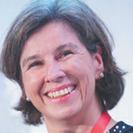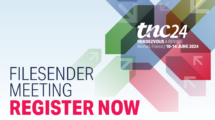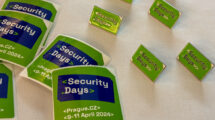This week, around 250 GÉANT project participants will gather in Montpellier for the GÉANT symposium: an ‘all hands’ meeting run by the Project Management Office (PMO) that takes place every couple of years, where participants representing all of Europe’s National Research and Education Networks – aka the consortium partners – analyse and discuss progress towards project objectives, prioritise work and resources, and develop human networks for ever better collaboration.
And that seems entirely natural.
Of course, 250 project participants come together, of course they represent all of Europe, of course they work seamlessly together across nine different work packages and 42 different tasks that – through multiple generations of the GÉANT project spanning 25 years – continue to deliver the vital foundations for Europe’s scientific future, led by a PMO and transparently governed by a democratic process that would make some politicians blush.
But can it be that simple? Bringing a large, multi-country, multi-year project together is no easy task. Running it successfully over more than two decades and several administrations is quite an achievement.
So, what lies behind this unique community that has grown to represent more than 40 countries, working together to reach 110 countries worldwide, via regional networks that have loosely adapted the “GÉANT model” in their own region? What is it that allows research and education networking communities to successfully collaborate across the globe, across cultures, across nationalities, and across wildly different environments and available resources, without the hand of politics?
From my perspective, there are three powerful words behind it all: community, communication, and coordination.
First and foremost, it is of course our community and the people within it. However, what makes our community and people so strong is the fact that we have a shared sense of purpose – this not only drives us to repeatedly go the extra mile, but it also compels us to communicate. It’s not about how much we each know, but how well we communicate our knowledge so that, together, we are so much stronger.
And it is this diligent communication by our project participants that ensures continuous delivery of results. There are many ways to do this, particularly built around transparency and regularity – and for those of you newer to the project we’ve compiled a table of tips and habits below, to help!
A successful and collaborative project also relies on strong coordination. There is nothing better than a well-run project for the structuring of relationships and for the building of self-confidence. When we come together in regular project meetings, when we deliver to common results and a purpose, this gives meaning. When we see how our contributions matter, that gives confidence. Working with people across 110 countries educates us about different cultures, and there is nothing better than the protective working environment of a project to get to know people from across Europe and the world and learn to fully appreciate what diversity brings to us, as project participants and as humans, and how we can ourselves enrich a team.
So, while our symposium might appear a simple meeting in Montpellier, it is in fact an opportunity for us all to look beyond our normal working environment and learn about the full context of the work GÉANT and the NRENs deliver in Europe and globally – and we hope you agree it is in fact something very special.
Communication and Transparency are key:
- Project meetings are transparent and fully inform about activities.
- A written summary is stored in an agreed and accessible space.
- We don’t “sit” on information – early “oversharing” of information builds trust and ownership and encourages others to do the same.
- It is best to speak up in Task and Work Package meetings – every voice counts. Share your doubts, somebody else for sure will have been in your shoes and can help.
- Let’s avoid surprises. The aim is that all project partners are fully informed. To build trust and ownership in a project, there is a need to include and inform fully and early.
Regularity is key:
- Meetings take place regularly. Not as a one-off or on a “need to know” basis, but regularly to an agreed schedule.
- There is an agenda. Meetings are prepared in advance and minutes are taken. Presentations are made available immediately afterwards and in a very unbureaucratic way.
- Make sure you control your budget – learn how to budget realistically and control the budget that you own. The more interaction you have with your project partners, the easier it is to stay on top of your budget.







